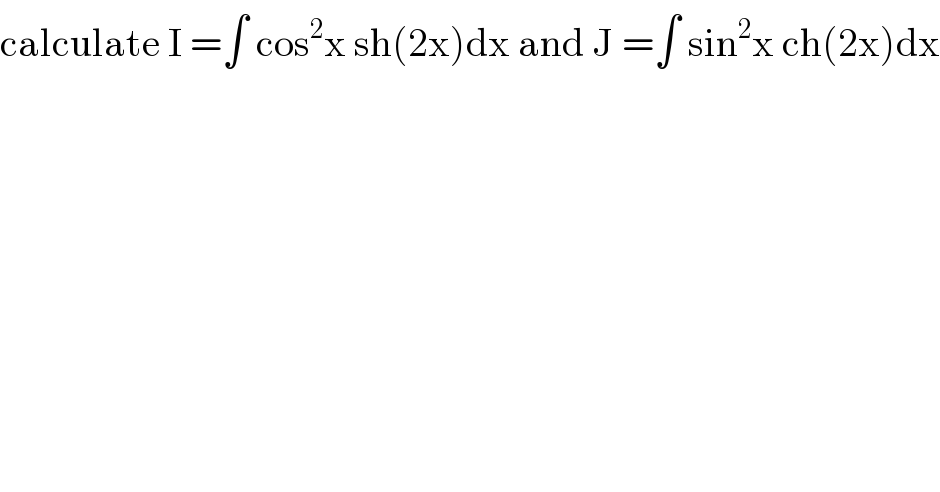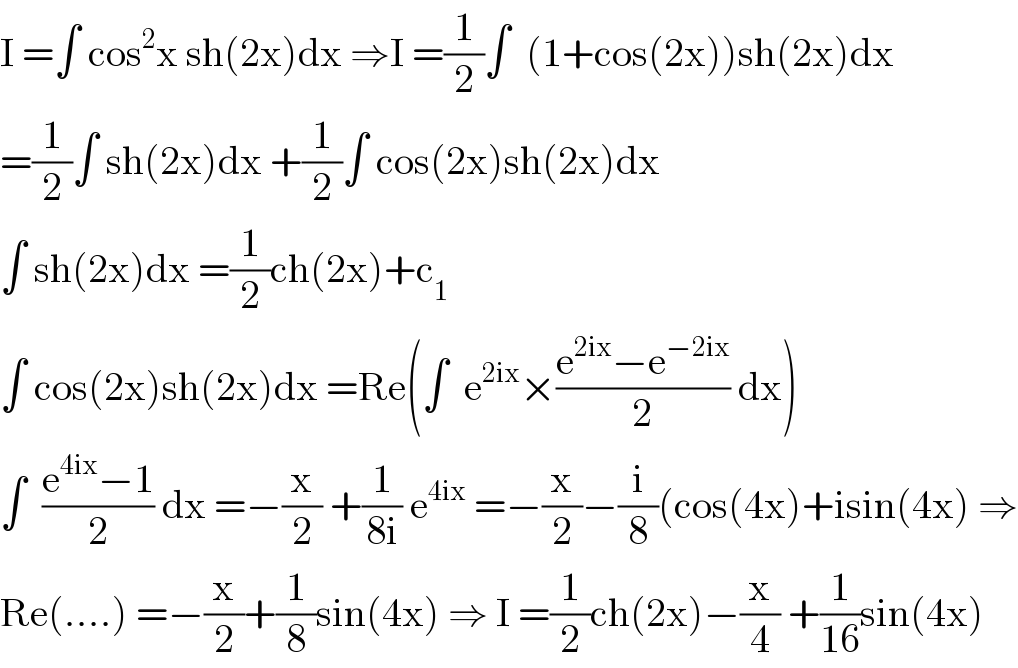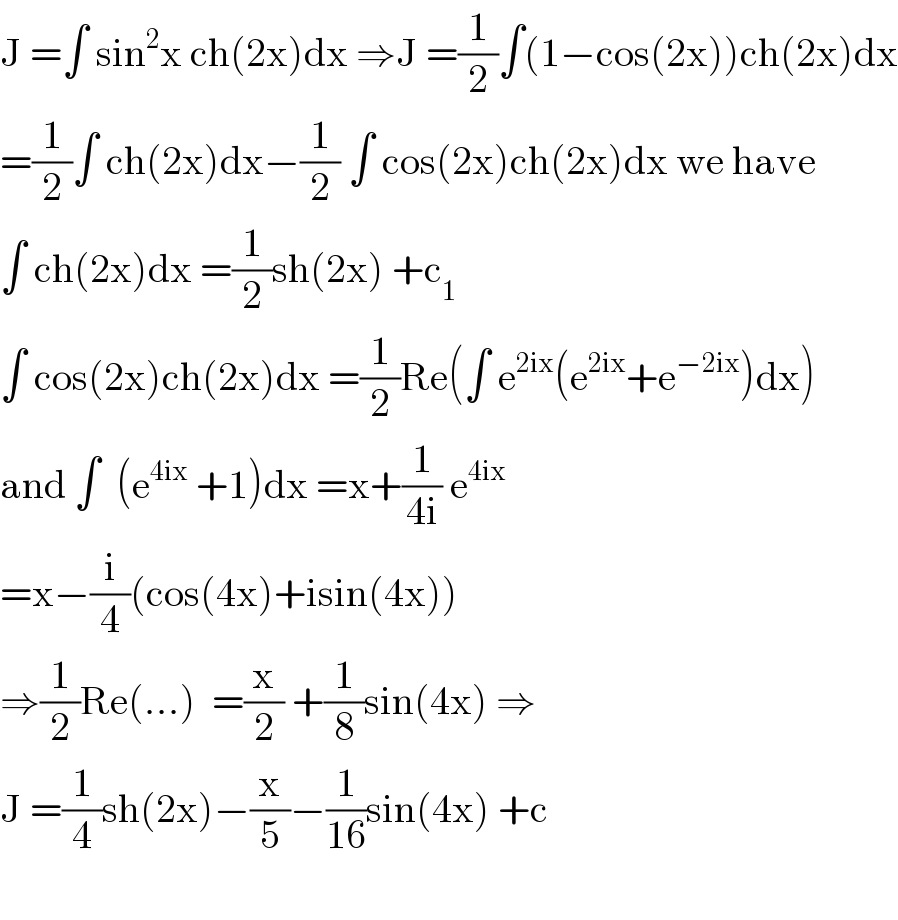
Question and Answers Forum
Previous in Relation and Functions Next in Relation and Functions
Question Number 99465 by mathmax by abdo last updated on 21/Jun/20

Answered by mathmax by abdo last updated on 22/Jun/20

Answered by abdomathmax last updated on 22/Jun/20

Commented by abdomathmax last updated on 22/Jun/20

